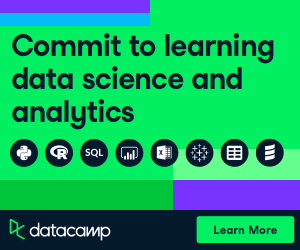There are different motivations that make people want to learn a programming language. Some programmers choose a language because they think that it will make them achieve an excellent professional development.
As a general purpose language, Python programming language offers you diverse career paths that can be chosen. In this article, I cover some of the fields where mastery of Python will lead you to golden career opportunities. The Python professional career you can pursue include:
- Data Analyst or Data Scientists
- Back-End Web Developer
- Machine learning and AI
- Ethical Hacking and Penetration Testing
- Software Engineer/Developer
- Tech job in financial services
- Work in fields related to math, science and medicine
Data Analyst or Data Scientists
With the concept of Big Data taking hold, many organizations today want to make sense of large quantities of data in a fast and effective way. They, therefore, hire data analysts who can go through large sets of data and provide useful insights – as you can imagine, these guys need powerful tools to do that.Python is one of the most popular languages with data scientists and they don’t just like it because it is free and open-source. Python has something else going for it; its libraries. These libraries perform advanced analysis on large data sets quickly making it indispensable for data scientists.
An obvious benefit of it being free and open source is that people can easily write new library packages and add to existing ones to provide more functionality. The field of Data Science has benefited from the creation of powerful libraries with one standing out in particular; Pandas.
Pandas (it is rooted in NumPy – a library that performs advanced numerical analysis) comes with a nice blend of data handling tools to form a toolkit that any data scientist would find invaluable in their line of work.
Of course, there are other tools that are suited to different data manipulation functions, but the general consensus is that professionals who use Python have an easy time working with Big Data.
Please visit my previous post to learn about Python frameworks for data science.
Back-End Web Developer
There are two main components of a website, something that visitors can see and interact with (front-end) and something that work behind the scenes but make sure that all functionalities operate properly (back-end).Back-end developers are required to deliver the data or services requested by the front-end system flawlessly. They must be able to create and maintain the application logic, database connections, Application Programming Interface (API) and other processes. More importantly, back-end developers must constantly performing testing and debugging all of the systems they created.
You can pursue a career as a back-developer by mastering Python language. Python has frameworks that allow you to create web applications without having to deal with low-level technicalities. Frameworks such as Django, Flask, Pyramid, and Tornado have made many backend developer’s jobs easier.
Each of those frameworks has their unique features but if you take Django as an example (because it is very popular) to understand why Python is loved by many backend developers, you will quickly learn that it is excellent at structuring code and comes with numerous built-in packages that place more complex functionalities within reach.
These frameworks are also growing constantly to keep up with the changing demands. Therefore, that should array your fears of sticking with obsolete tools if you base your backend web development career in Python.
Machine learning and AI
Machine learning and Artificial Intelligence (AI) are relatively new fields. There are many things about the projects involving them that make them dissimilar to traditional software projects.So, as you venture into these fields, you need a programming language that will give you stability, flexibility, and support.
Python ticks all these boxes and has more to offer if you are passionate about AI and machine learning:
- Easy to learn and use: Machine learning and AI involve working with complex algorithms and the fact that Python is easy to use without sacrificing performance and functionality is a silver lining. Python’s intuitiveness makes it less stressful to work on tough projects both individually and as a team.
- With Python, you do not have to reinvent the wheel. There are numerous frameworks and libraries that perform common AI and machine learning functions freeing up your mind to focus on other aspects of your projects.
- It works on multiple platforms: The code you write in Python can run on many operating systems with minimal to zero changes required. This level of versatility is important because you can train your models on one platform without worrying too much about how it will work on others.
Ethical Hacking and Penetration Testing
Any career in cybersecurity can be described as containing a universal element; change. Whatever tools you use as an ethical hacker or penetration tester will have to account for a constantly changing landscape and going in with a background in Python can keep you ahead of the curve.You already know that Python is simple to learn, use, and execute – this helps when you are creating security-based programs that automate routine tasks and spot new, unique threats.
But as you venture into this industry, particularly as a pentester, you must be wondering how Python factors in when there are ready-made tools that do everything. I will bring to your attention the fact that unethical hackers and other threats are evolving so fast, off-the-shelf tools struggle to keep up.
You should have the capacity to develop your own tools or update the current capabilities of the tools available to be better-placed to curb threats and protect vital information.
Fortunately, learning Python with a focus on pen-testing and ethical hacking will afford you the luxury of working with a simple and flexible language without sacrificing functionality and dependability.
Software Engineer/Developer
Software engineering or development covers a host of things. If I was to give you a summary of what one does as a software engineer, I would say that it involves creating and maintaining systems and application software.It is a broad field that covers a host of industries; most people specialize. As you work, you will combine engineering principles with a mastery of programming to provide solutions to modern problems and create revolutionary products.
Speaking of programming, Python is arguably the most popular language used by software developers. As a Python developer, you will be able to create all sorts of applications and work from many platforms.
Big and small companies are hiring software engineers because all modern systems require the skill set they bring to the table. Being a python developer is an advantage because more clients want to base their systems on Python or at least have elements of it.
Tech Job in Financial Services
In this disruption era, we can recognize two fundamental transformations in the finance industry. More and more giant financial institutions are shifting into tech companies and the growth of new fintech companies taking over many financial services.I highly recommend that you read my previous post that discuss how Python become number one programming language in finance.
The transformations open the door for programmers to pursue careers in the financial industry. However, you must be aware that you will work in an interdisciplinary environment where you have to work side by side with economists, mathematicians and other experts.
Don’t hesitate to enter this field, there are numerous positions you can fill in this industry. You can be a software developer building or maintaining banking applications, payment system or customer service apps. If you love to play around with big data, you can try tackling very big data stream to calculate risk or detect fraudulent. Other roles you can pursue are developing algorithms for automated trading and cryptocurrency.
If you're ready to jump into this field, you can start looking for Python programmer vacancies at https://www.efinancialcareers.com/ website.
Work in fields related to Math, Science, and Medicine
Python can be used to build almost anything. This means that there are so many non-IT companies that need Python to solve their problems.In my previous article, I talked about how NASA uses Python. You can look at their Workflow Automation System (WAS) and their open source software projects to grasp how Python is used in scientific research.
Python is really handy to tackle simple and complex numerical analysis. Scientists and mathematicians may keep on using spreadsheet to perform calculations. However, if they spend a little time learning Python they will be able to save a lot of time to simulate concepts and go more in depth into the calculations.
Python can be used to generate simple graphs based on user surveys on different product designs. You can also generate analysis based on test results. In brief, Python is a powerful tool to automate repetitive tasks and solve complex problems in a matter of seconds.
On the other hand, Python is also an efficacious language in terms of processing text data. This is the reason why so many biologists moved to Python to analyse Deoxyribonucleic Acid (DNA) database.
Biologists who study bioinformatics carry out extensive analysis of DNA sequences. They repeatedly making manipulations of four nitrogenous bases (ATGC) that comprises the DNA. Some DNA sequence analysis they perform include comparing two or more sequences, eliminate unspecified sequence reading, inverse the sequence, convert DNA to RNA, homology searches, phylogenetic analysis and many more.
Nowadays, biologists are aiming for large-scale sequencing that decode very long DNA pieces. The DNA read they produce are longer than 1000 base pairs, up to a million base pairs. (https://www.bbc.com/news/science-environment-46046024). On top of that, their studies demand them analysing thousands of long-sequences to find answers to their problems in biology and medicine.
A robust programming language like Python is all they need to turn DNA codes into future health solutions such as precision medicine and preventive medicine. As a programmer, you can work hand in hand with biologists running enormous bioinformatics analysis.
Conclusion
Python is a general purpose language, an all-in-one tool for programmers to solve a variety of problems from different disciplines. It is also a multi-paradigm language that supports procedural, object-oriented, functional and other programming approaches.Other than the obvious benefit of it being easy to learn and work with, it is becoming an industry-standard in many fields. And with that comes many careers that you can dive into if you are willing to master it.





No comments:
Post a Comment